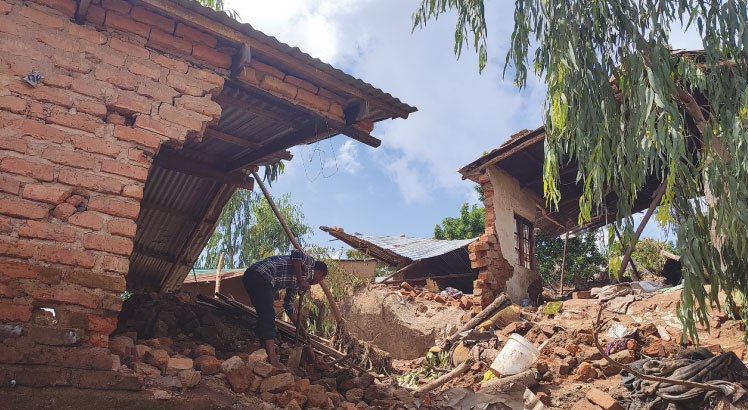Improved wood stoves to reduce deforestation

A Balaka-based non-governmental organisation (NGO), Chinansi Foundation, has embarked on a carbon project focusing on improved cook stoves that use less fuel wood compared to the traditional three-stone cooking.
The Improved Wood Stove Project, according to the foundation, is expected to contribute towards sustainable environmental management and climate change mitigation through usage of the stoves called mtetezi mbaula.
Chinansi Foundation executive director Simplex Chithyola told a local stakeholders consultation meeting in Balaka on Friday that through the project, about 60 000 families in the district will get a stove each.
He said the project was aimed at providing clean and affordable energy to the community.
Chithyola said the three-stone cooking method uses more firewood and emits a lot of carbon, thereby contributing to depletion of the ozone layer.
“We would want to reverse that trend [of using high volumes of fuel wood]. Because this stove will use less fuel wood, it will help reduce deforestation,” he said.
Balaka is among the districts in Malawi with high levels of deforestation due to unchecked charcoal burning. But the stoves will not use any charcoal.
The project is financed by Fair Climate Network Southern Africa based in Kenya whose coordinator Geoffrey Kiringa said the improved stoves have multiple environmental benefits.
“By using little fuel wood, you maximise on air quality because there is less smoke and pollution. This results in a clean environment of less carbon dioxide which reduces climate change,” he explained.
Similar projects are being implemented in Mauritius and South Africa. Kiringa said the Chinansi Foundation Project will run for seven years, subject to renewal for 21 more years.
The stoves will be manufactured by local artisans within the district who will be trained in how to produce them.





